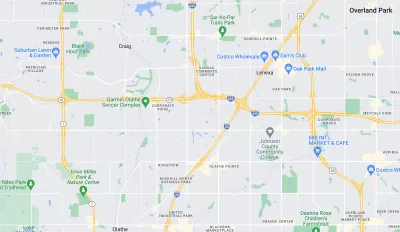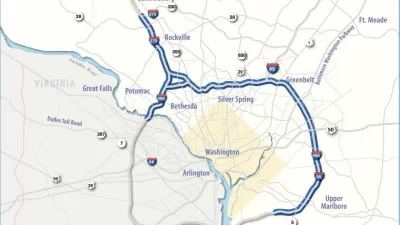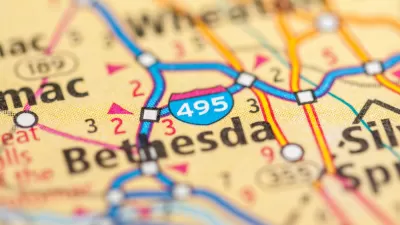After the state broke ground on a tolled express lane project at the eastern edge of Kansas, near Kansas City, tolls are also under consideration in the nascent stages of a corridor study located at the southwest edge of the same region.

Options for investments along a 17.5-mile stretch of State Highway 10 where it runs through Johnson County, Kansas could include tolling.
Kaylie McLaughlin reports that consultants from HNTB are currently working on a corridor study for the state of Kansas—only the most recent study in a series of studies over the years, according to the article.
“Now, as traffic continues to increase and growth in the western part of the county booms, state and local leaders are looking at K-10 again, particularly the area between Cedar Creek Parkway in Olathe and where K-10 ends at I-435 in Lenexa,” writes McLaughlin. Poor repair and safety issues are also cited as a need for the investments along the corridor.
But tolls are the headlining topic of discussion in the study. “One solution discussed at length was the potential to add an express toll lane on K-10 through Johnson County, likely mostly in Lenexa, where traffic picks up closer to I-435,” reports McLaughlin.
According to McLaughlin, tolling is a relatively novel approach for the state of Kansas, but the state recently began work on express toll lanes along U.S. Highway 69 in Overland Park.
FULL STORY: Toll lane floated as way to ease K-10 congestion in JoCo

Manufactured Crisis: Losing the Nation’s Largest Source of Unsubsidized Affordable Housing
Manufactured housing communities have long been an affordable housing option for millions of people living in the U.S., but that affordability is disappearing rapidly. How did we get here?

Americans May Be Stuck — But Why?
Americans are moving a lot less than they once did, and that is a problem. While Yoni Applebaum, in his highly-publicized article Stuck, gets the reasons badly wrong, it's still important to ask: why are we moving so much less than before?

Using Old Oil and Gas Wells for Green Energy Storage
Penn State researchers have found that repurposing abandoned oil and gas wells for geothermal-assisted compressed-air energy storage can boost efficiency, reduce environmental risks, and support clean energy and job transitions.

Updating LA’s Tree Rules Could Bring More Shade to Underserved Neighborhoods
A new USC study finds that relaxing Los Angeles’ outdated tree planting guidelines could significantly expand urban tree canopy and reduce shade disparities in lower-income neighborhoods, though infrastructure investments are also needed.

California's Canal Solar Projects Aim to Conserve Resources and Expand Clean Energy
California’s Project Nexus has begun generating electricity from solar panels installed over irrigation canals, with researchers and state agencies exploring statewide expansion to conserve water and boost clean energy production.

HHS Staff Cuts Gut Energy Assistance Program
The full staff of a federal program that distributes heating and cooling assistance for low-income families was laid off, jeopardizing the program’s operations.
Urban Design for Planners 1: Software Tools
This six-course series explores essential urban design concepts using open source software and equips planners with the tools they need to participate fully in the urban design process.
Planning for Universal Design
Learn the tools for implementing Universal Design in planning regulations.
Heyer Gruel & Associates PA
City of Moreno Valley
Institute for Housing and Urban Development Studies (IHS)
City of Grandview
Harvard GSD Executive Education
Salt Lake City
NYU Wagner Graduate School of Public Service
City of Cambridge, Maryland




























